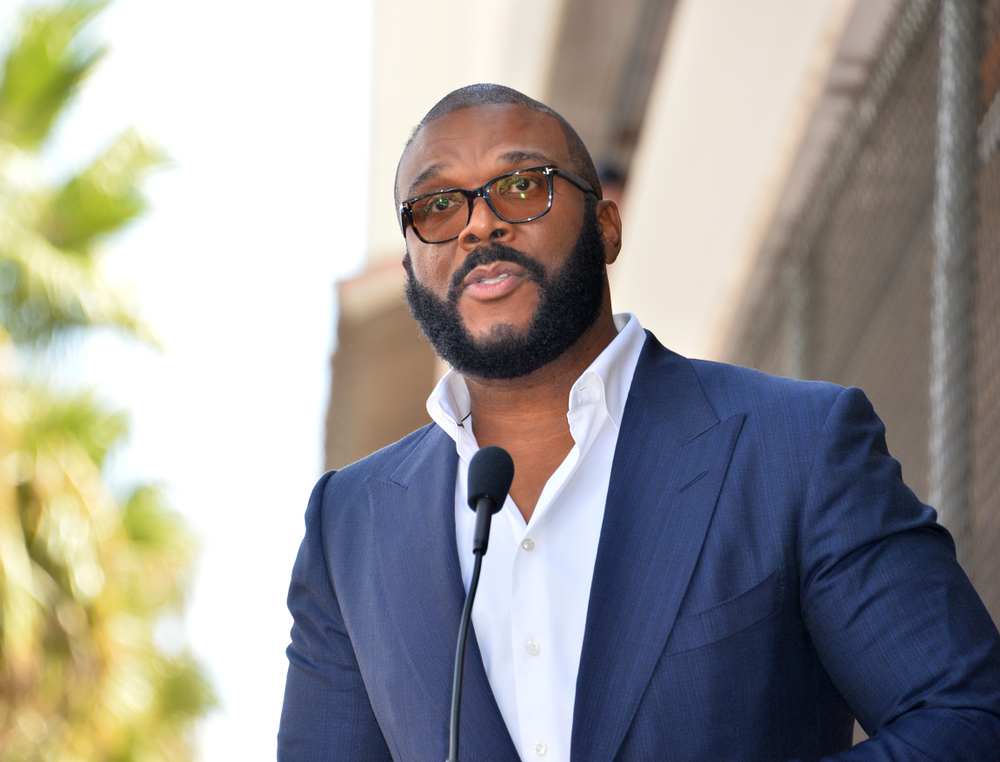The Ghanaian fashion designer anchors his gender-neutral namesake label in his homeland’s perspective of dressing.
Google designer Nana Kwame Adusei, and you’ll instantly understand why his vision and deep-rooted principles have made him a success. The Ghanaian founder of his eponymous fashion label, based in Los Angeles, is candidly himself, full of passion and an inherent love for African fashion.
The young design label—established in 2021—represents a crossroads of style that introduces an international audience to true African sensibilities free from prejudice and presumption. In a business where companies and individuals tend to make little of what African influence is really about—reducing it to only animal prints and blazing color – Adusei is filling in the gaps, creating clothing that centers around history, community, total body liberation and gender neutrality—not generic, common collectives of homogenous physiques, minute pattern assortments and hierarchies of sexual identity.
The designer’s outlook on fashion is fundamentally tribal and natural. He draws on inspiration from his heritage, interpreting West Africa’s strong sense of inclusion, interpersonal relations and vast history of style. His fit models are his friends, assisting him in ensuring each piece emphasizes a modern insight into the untold stories of simplistic African dressing, an important aesthetic that goes beyond the conventional approach.
Prior to its exploitation and subjugation, key components of traditional African style were primarily influenced by geographical proximities to the equator. The closer a community lived to this hemisphere border, the less clothing they required. Long, rectangular pieces of natural textiles such as cotton, jute, flax and linen, dyed in nature’s own monochromatic colorways were used to wrap parts of one’s body—a graceful style aesthetic ingrained in centuries-old customs. Unfortunately, these free liberties were violently struck down by colonizers who used their so-called politics, religion and misogynistic forms of dress to enforce “modesty” upon the indigenous people, those whose faith, spirituality and attire had already owned a respected history that dated as far back as the 800s.
In an interview with V Magazine, the designer elaborates: “The older I get, the more I gravitate toward minimalism because I understand how minimal African fashion was before fabric manufacturers introduced colorful prints to African style.”
Adusei incorporates what he describes as a “rawness” of early African sartorial systems into his brand, a refreshingly modern shift from the hyper-individualism that typically plagues all realms of the industry. By doing so, he designs distinctively confident clothing similar to the personalities of his consumers but also categorically demonstrates how concepts of “gender-inclusivity” and “genderless fashion” aren’t contemporary ideologies. They’ve already existed outside of the Western world for thousands of years.
“African fashion before colonization was always genderless,” Adusei explains. “If you look at pictures of our traditional outfits, you’ll notice the fabric always gets draped to cover vital parts of the body, making it indistinguishable from a man’s or woman’s garment.”
As his clothing label was launched only two years ago, the fashion industry loves to refer to Adusei as an “emerging young talent” who dresses stars like Beyoncé and Lori Harvey. And while these details might appear impressive given the tender age of his namesake label, Adusei’s rise to fame has been many years in the making. He has quietly designed for well over a decade, consolidating his technically adept background in tailoring and appreciation for Africa’s deep history in ready-to-wear and couture pieces for his label, Ćharlotte Privé in Ghana (founded in 2011 in honor of his mother), long before Hollywood even took notice.
The company’s success grew into a thriving enterprise, where Adusei owned his own garment manufacturing plant and retail stores, but when the COVID-19 pandemic forced the closing of his businesses in Ghana, he struggled to establish his namesake clothing label. Ever determined, Adusei landed on the West Coast in 2019 and carved out space in the Los Angeles fashion market, where he continued to make timeless garments, including those featured in his self-hosted Resort 2022 runway collection, one year later in downtown L.A. The exhibition honed in on his signature minimal, free-spirited, edgy aesthetic—the set decor infused with design elements of the Larabanga Mosque, one of the oldest mosques in Ghana.
Not long after his Los Angeles debut, celebrity stylists began to take notice and Adusei’s pieces also landed on the bodies of Halle Bailey and Kylie Jenner, but it was Lori Harvey wearing a seductively provocative garment—called the Kabun—that really caused the commotion that went viral on social media, a defining moment in the brand’s growth and success.
Despite an overly saturated industry, often churning on excess and fast, cheap production, Adusei continues to reimagine what fashion can be while maintaining his mission of producing high-quality, sustainable fashion based on the purest stories of a garment. As he looks toward the future, the Los Angeles-based-Ghanaian designer strives to share a piece of West Africa’s rich history, upholding that wonderful intersection of where a recentering of preconceived notions and human connection continue to meet.
“Community building was a big part of life growing up in Ghana. We were typically raised by five or six people because everyone took care and looked out for one another. Everybody needs a support system, and that doesn’t necessarily mean you have to know these people for a long time.”








